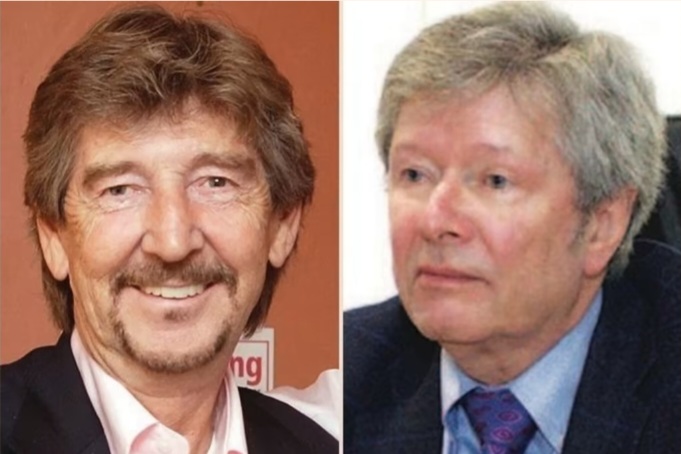Ololade Adeyanju/
Nigeria this week at London’s High Court renewed its bid to overturn an $11 billion arbitration award that left it owing more than a quarter of its foreign reserves to Process & Industrial Development (P&ID), an obscure offshore company.
The legal dispute, which has run on for more than a decade, centres on a contract that the Nigerian government struck with Michael Quinn, an Irish former band manager, and his business partner, Brendan Cahill, to help the country turn its vast reserves of natural gas into power.
The project never broke ground and P&ID in 2012 began arbitration proceedings against Nigeria for breach of contract. The offshore company ultimately won a $6.6 billion award from a panel of arbitrators in London, one of the biggest known payouts to a company from a sovereign state.
That bill has risen to $11 billion with interest.
The Nigerian government is now seeking to persuade the High Court that the successful arbitration claim was built on “a massive fraud perpetrated by P&ID” in collusion with former government officials. It claimed in court filings that the deal was “procured by bribes” and the arbitration “tainted”, according to Financial Times.
Mark Howard, the barrister representing Nigeria, told the court on Monday that Quinn and Cahill “and their group of companies . . . were up to their neck in corruption in Nigeria”, adding: “It’s difficult to overstate how corrupt and dishonest these individuals are.”
In court documents prepared for the hearing, Nigeria authorities said P&ID never intended the project to succeed and then bribed lawyers instructed to advise the country on the arbitration, who did not properly defend its interests.
P&ID in its own legal filings denied the project was a “sham”, arguing that it was a “contract which P&ID genuinely wanted to perform, and a genuine arbitration which [Nigeria] lost for reasons . . . [that] had nothing to do with any corruption”.
In court filings, P&ID said the allegation that the company had bribed members of Nigeria’s legal team was “manifestly false” and a “pure piece of invention”. The company said Nigeria had also not proved that Quinn and Cahill’s other Nigerian government contracts were “anything other than genuine.”
Quinn, who managed bands in 1960s Dublin before transforming himself into an industrial consultant for projects in Nigeria, died in 2015. Court filings submitted by the Nigerian government say the company he co-founded is now controlled by Lismore Capital and VR Advisory, a hedge fund that specialises in distressed debt.

P&ID claims the Nigeria government invented the accusations of corruption to avoid paying what it legally owes. “P&ID vigorously denies that the awards in its favour should be set aside,” a company spokesperson said, adding: “P&ID will present its submissions and evidence to the English High Court in support of its defences.”
Arbitration awards are notoriously difficult to overturn. But Nigeria was granted a lifeline in 2020 when a London High Court judge granted it more time to pursue a challenge on the basis of alleged corruption.
The judge, Sir Ross Cranston, said there was “a strong prima facie case that the [project] was procured by bribes paid to insiders as part of a larger scheme to defraud Nigeria”. He found there was also a “strong prima facie case” that Quinn had given “perjured evidence to the tribunal” to “give the impression that P&ID was a legitimate business and was able and willing to perform the [contract]”.
Cranston also found there was “a possibility” that a former attorney-general of Lagos state, Olasupo Shasore, who was Nigeria’s lawyer for part of the arbitration, “had been corrupted”. The judge pointed to payments made by Shasore to two lawyers involved in the proceedings, and agreed there was a “strong prima facie case” that the payments were designed “to purchase their silence”.
Shasore has in newspaper reports vehemently denied wrongdoing.
The trial continues and is expected to last eight weeks.
0






